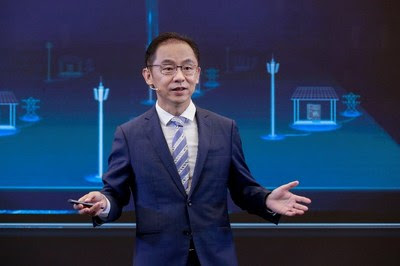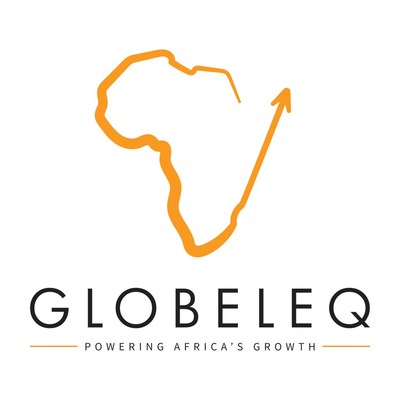DUBAI, UAE, Oct. 14, 2021 /PRNewswire/ — At the 2021 Global Mobile Broadband Forum (MBBF), Ryan Ding, Huawei’s Executive Director and President of the Carrier Business Group, gave a keynote speech entitled “Green 5G Networks for a Low-Carbon Future”. In his speech, Ding said that 5G has become a new engine for the growth of the mobile industry, and that to adapt to the rapid growth of data traffic, the whole industry will need to keep pursuing innovations in power supply, distribution, use, and management, and build greener 5G networks with higher performance and lower energy consumption.

According to Ding, in countries where 5G is developing faster, operators who have invested heavily in 5G have seen remarkable returns, but he stressed that operators will realize business value only when the 5G user penetration rate is high enough. When the 5G user penetration rate reaches a threshold of 20%, Ding said, rapid development of 5G will follow. In countries such as China, South Korea, and Kuwait, operators were quick to provide continuous nationwide coverage, giving users a consistent experience. They also offer flexible service packages, which delivers a win-win result for both users and themselves. In addition, these operators are providing a gigabit experience—a tangible improvement over 4G—to accelerate user migration and network evolution. In these countries, the 5G user penetration rate has exceeded the 20% threshold, triggering a positive cycle of user growth, business returns, and network construction.
High-quality 5G networks will drive the rapid growth of mobile data traffic. It is estimated that the average data traffic per user per month will reach 600 GB by 2030. If the energy efficiency of existing networks remains unchanged, the energy consumption of wireless networks will increase by more than tenfold. Ding said that to cut the ICT industry’s greenhouse gas emissions by 45%, operators will need to pursue ongoing innovations in power supply, distribution, use, and management to build greener 5G networks with higher performance and lower energy consumption.
Huawei itself offers a comprehensive range of products and solutions that address power consumption issues of wireless networks. The company has developed the iSolar power supply solution that covers all scenarios, including poles, cabinets, sites, and equipment rooms. This solution can reduce the use of electricity from grids and fossil fuels by diesel generators and improve the energy mix that powers base stations. On the power distribution front, Huawei provides an industry-leading high-density power solution. For each site, just one cabinet—or even just one blade—is needed, which supports the long-term evolution of mobile networks. To use power more efficiently, Huawei has redesigned site form factors and now offers highly integrated simplified site solutions for use in all scenarios. These solutions maximize the share of energy used by communications equipment and ensure electricity is fully used. Wireless networks need to work in synergy with power supply, distribution, and use. This means operators need to use information flows to manage energy flows, in order to maximize energy use and save energy at the network level.
Toward the end of his speech, Ding said Huawei has already deployed low-carbon site solutions in more than 100 countries, including Saudi Arabia, Greece, Pakistan, and Switzerland, helping operators reduce carbon dioxide emissions by 40 million tons. As a player in the communications industry, Huawei will continue to put green development at the center of everything it does and develop innovative solutions to build greener 5G networks with operators worldwide.
The Global Mobile Broadband Forum 2021 is hosted by Huawei, together with its industry partners GSMA and the SAMENA Telecommunications Council. The forum gathers mobile network operators, vertical industry leaders, and ecosystem partners from around the world to discuss how to maximize the potential of 5G and push the mobile industry forward. For more information, please visit: https://www.huawei.com/en/
About Huawei
Founded in 1987, Huawei is a leading global provider of information and communications technology (ICT) infrastructure and smart devices. We have more than 197,000 employees, and we operate in more than 170 countries and regions, serving more than three billion people around the world.
Our vision and mission is to bring digital to every person, home and organization for a fully connected, intelligent world. To this end, we will drive ubiquitous connectivity and promote equal access to networks; bring cloud and artificial intelligence to all four corners of the earth to provide superior computing power where you need it, when you need it; build digital platforms to help all industries and organizations become more agile, efficient, and dynamic; redefine user experience with AI, making it more personalized for people in all aspects of their life, whether they’re at home, in the office, or on the go. For more information, please visit Huawei online at www.huawei.com or follow us on:
http://www.linkedin.com/
http://www.twitter.com/Huawei
http://www.facebook.com/Huawei
http://www.youtube.com/Huawei
Photo – https://mma.prnewswire.com/


